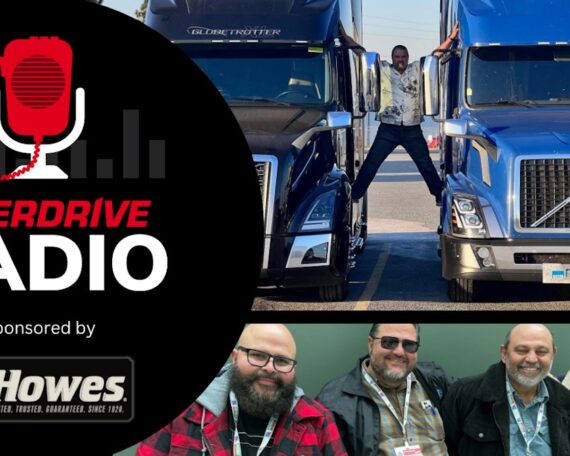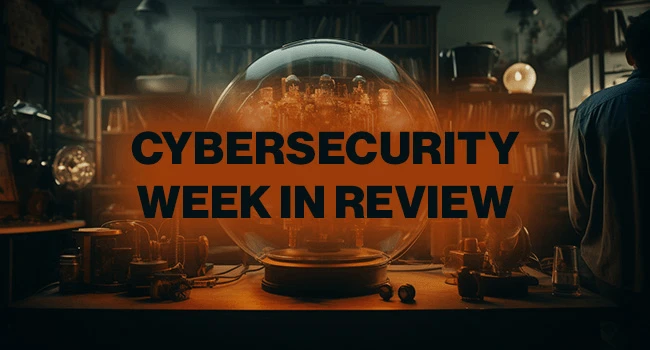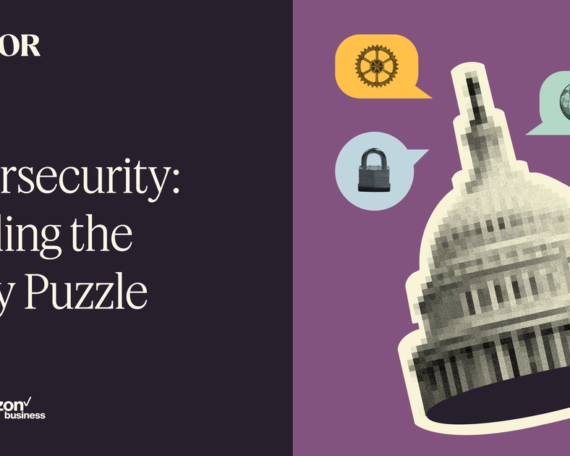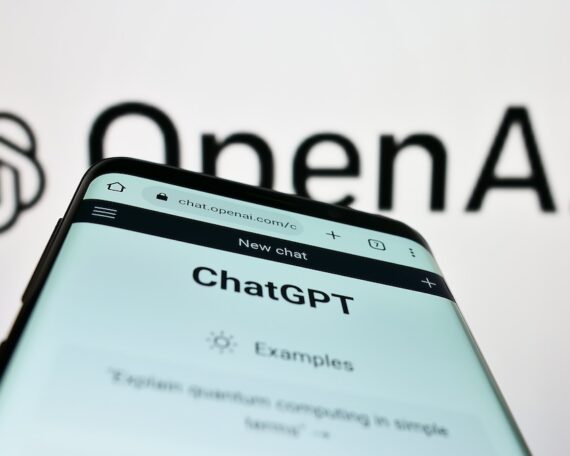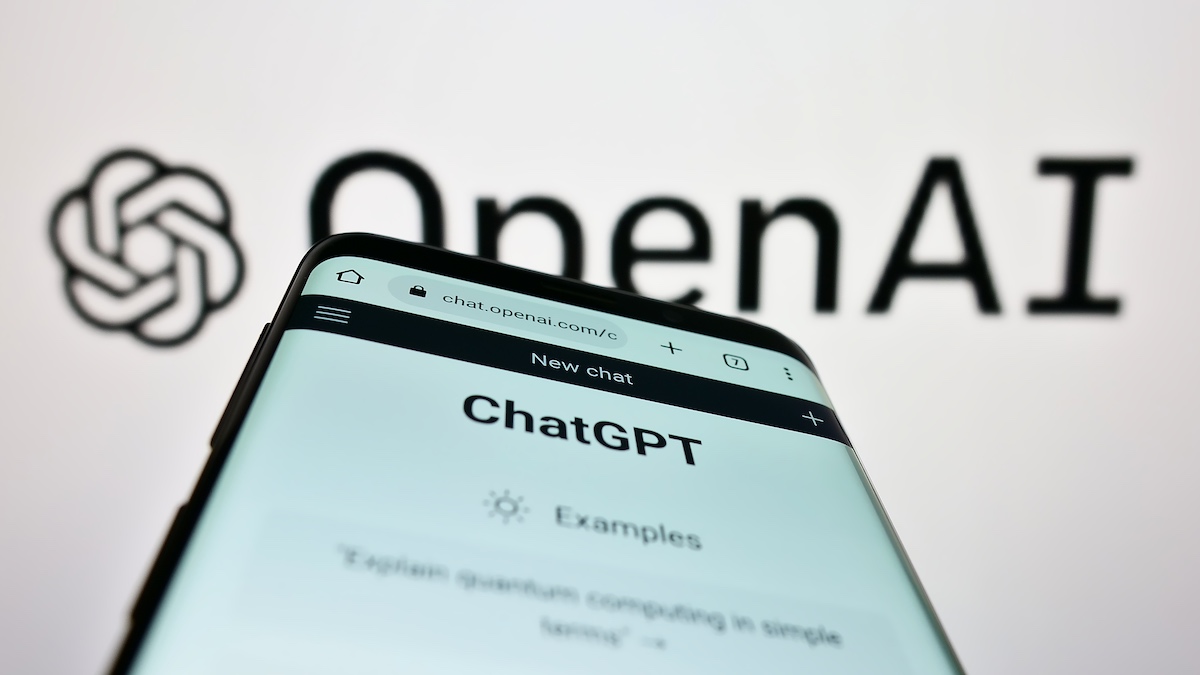Marroquin Brothers: From Guatemala to U.S. Trucking
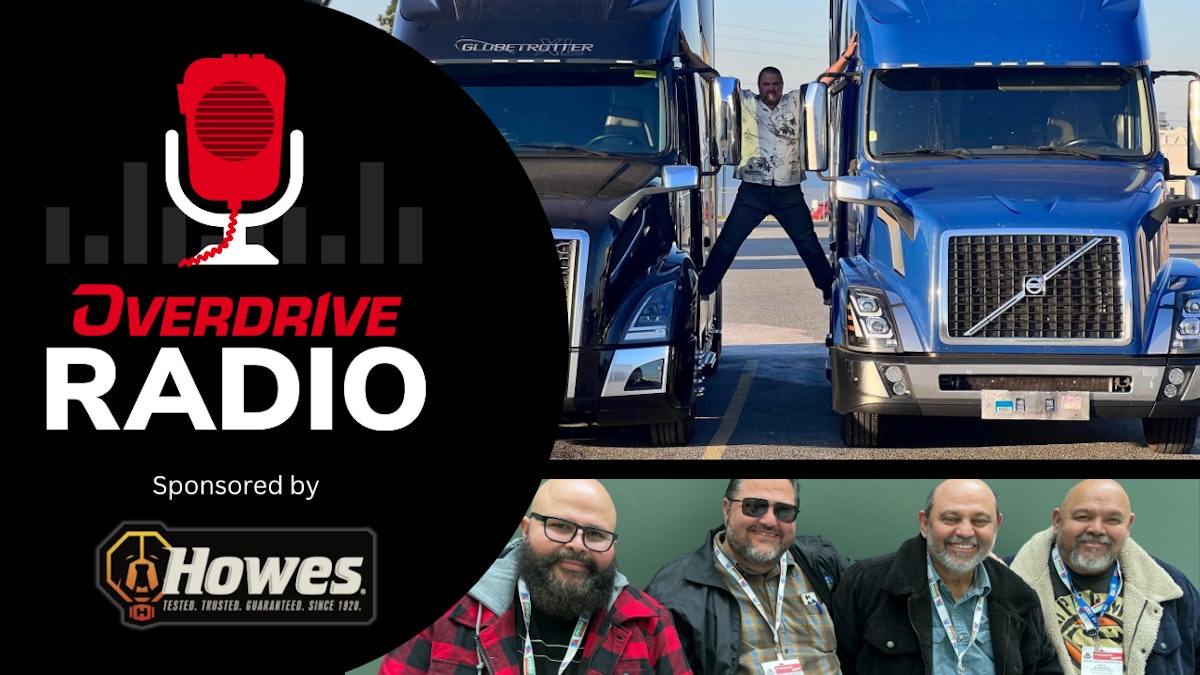
Todd Dills: Here’s a big, Happy belated Father’s Day to all the dads in the audience. Same, I think, will go for the men you’ll hear today on the Overdrive Radio podcast for June 17, 2024, where we’ll hand the reins of a fashion over to our own regular Overdrive extra blog contributor and owner operator coach Gary Buchs. He retired from the road several years back now after a long career leased to Landstar. I’m Todd Dills, and at the Mid America trucking show back in March, Gary happened upon the picture of four men with clearly some family resemblance between them, resting and sitting and laughing amongst themselves out in the big south wing hallways between meeting rooms.
One among them happened to be wearing a Landstar hat, and Gary took a brief moment to just introduce himself and learned that three of the four were owner operators there today. All four of the men, Ivar, Luis, Diego, and Carlos, were brothers united by the Marroquin surname and so much more. The four began their lives in Guatemala, losing their father there at an early age.
Luis immigrated to the US in the late 1980s, and Ivar and Diego both followed thereafter. Those three all had trucking experience prior to entry into the US themselves, you’ll hear. The fourth, though, didn’t yet. When Carlos’ Bakery business in Guatemala ran its course by the year 2007, he went through the immigration process himself to come to the US, and eventually found his way to a CDL, too. Carlos Marroquin is currently mulling the possibility of business ownership, leaning on what his brothers have learned throughout their three decades, each in us trucking, the most recent years as owners. Gary Buchs would learn all this when he sat down with the men around a table in the press room at Matt’s. Not the greatest spot to record a big conversation. It was a little crowded in there at the time of the recording, yet the results are worth taking the time to hear. I think the brothers Marroquin have persevered through a lot in their decades long odyssey as American truckers, and they’re sharpening their owner operator business waw, as time goes along, AB 5, California emissions rules and other pressures notwithstanding.
Ivar Marroquin: California used to be called, like the Golden State it is. It used to be called Golden State for trucking as well. Right now it appears that, has moved to Silver State instead of a golden.
Todd Dills: After the break, we’ll hear much more about all of that from all four. Again, that’s Ivar, Luis, Diego, and Carlos Marroquin in conversation with Gary Buchs. So keep tuned.
Speaker 3: This spring, increase rig power and performance with Howes Diesel Defender. It’s warrant safe, and made with no alcohol or harmful solvents to keep you running at your best. It provides maximum lubricity and specialized IDX four detergent, cleans and prevents deposits. It safely removes harmful water and even provides a 5% increase in fuel economy or more, guaranteed. Grab a bottle today at retailers and truck stops nationwide and visit Howesproducts.com for more information.
Todd Dills: That’s HOWES, Howesproducts.com. Here we dive right into the Marroquin brothers experience in recent years and their history trucking, starting with Ivar Marroquin. Here we go.
Ivar Marroquin: All right. My name is Ivar Marroquin, and I’ve been in the trucking industry for 33 years. And, being an owner-operator, this is my fourth year, I’m going to be four years with Landstar. That’s when I started my adventure for being an owner operator. So, yeah, four years.
Luis Marroquin: My name is Luis, and I started driving about 31 years ago. I started in Landstar about eleven years ago as an operator, and I was able to get in my own truck about four years ago.
Gary Buchs: You drove for someone else?
Luis Marroquin: I did, for the first seven years.
Diego Marroquin: Hi, I’m Diego. I have like, 31, 32 years driving trucks as well. And this is my fifth year as an owner operator. And actually, it’s my first time being an owner operator my whole life just being like an employee and now experiencing.
Carlos Marroquin: I have around six gears for the driving.
Luis Marroquin: He’s is for the process to get into Landstar.
Gary Buchs: Oh, you’re not Landstar or you’re not. You’re working on it. So have you been driving? Company driver?
And that’s how we all pretty much start.
Diego Marroquin: Our, last name. We’re four brothers. Our last name is Marroquin.
Todd Dills: That’s Diego you’re hearing there.
Diego Marroquin: That’s. We pronounce it in Spanish and it spells m m a r r o q u I n. Yeah. When, you know, in English, you said “Marrow Queen”, because you said a queen.
But I also say the joke that I don’t want to be a queen, I want to be a king. So it’s Marroquin.
You know what I mean?
Gary Buchs: From California? A tough trucking environment out in California in general. People talk about the higher taxes, the tougher rules, the environmental issues in general. How do you deal with that mentally?
Ivar Marroquin: I think it’s been a little bit tough, over the years.
Todd Dills: Owner operator Ivar Marroquin there
Ivar Marroquin: I’ve seen how has everything been changing? And then it appears that a lot of, rules, have been implemented in California, and that has affected a lot of us lease operators. So, California used to be called, like, the golden state. It is golden state, but used to be called golden state for trucking as well. Right now it appears that, has moved to, silver, silver, silver state instead of a golden. Right? Cost of living over there is so high. And then in my personal opinion, I have seen, you know, like a very unbalanced situation with all the inflation that is going. Inflation is going up, rents, or houses are going up, food, is going up, gas is going up, and rates, are going down. Rates are going down. So I think, it needs to be something, you know, done soon because I’ve seen a lot of the, you know, co, partners losing you m on their business.
When California implemented the ab five law, your income decreased significantly.
Gary Buchs: Diego, when you, talk about some of the challenges, are there any other particular challenges over the years with your experience with the different cycles of changes? What is the toughest challenge that you feel you’re facing with possibly.
Diego Marroquin: I think we faced the biggest one when they implemented the ab five law, because then we were challenging to get good loads and our income really, decreased in a very considerable amount. So we had to deal with that, figured it out, how we can keep the business going without losing that much money.
Gary Buchs: I’m glad you brought up the Ab five right away. And the challenge is because those of us who live outside of California have trouble understanding what the effect would be because we’re not there living there. So, Luis, when you look at the Ab law, when that affected, how did that affect, your contracts, for example, with Landstar, did it change the relationship?
Luis Marroquin: Pretty much it did because, we were, in order to keep going with pulling loads out of California, we had to move out of state, but our families are still in California.
Gary Buchs: You didn’t physically move your whole family?
Luis Marroquin: No, basically, I had to move myself out of state to get my license in a different state, and then, so I’ll be able to keep working in California and go see my family, but they’re not gonna move. So basically it separated my family.
Gary Buchs: Do you have a place of residency or could people set up just a post office box? How are they doing this?
Luis Marroquin: Basically, we rent an apartment.
Gary Buchs: Are the four of you renting in the same apartment together and that’s how you’re operating your business out of and that will be the plan.
So where did you go to get this far? Where? What state?
Ivar Marroquin: Nevada.
Luis Marroquin: Las Vegas, which is about 4 hours from my family.
Gary Buchs: Okay, 4 hours.
Luis Marroquin: Basically, we did the move just to be able to keep our loads that we were pulling out of California, because otherwise we were not going to be able to do them anymore. And then we tried for a while. We tried just moving loads out of Arizona, Nevada, and, we were losing a lot of deadhead milers. So we were forced to get our license somewhere else. We were able to keep working in California. It wasn’t really difficult. All you had to do is take, the hazmat test in Nevada, and that was it. And pay the difference. And it’s actually beneficial because it’s ten years versus five in California. It’s only five years. Nevada is ten years. So that was great.
Gary Buchs: And for people that may not know if you’re a Landstar contractor, they require all the contractors to have hazardous material on their license. do you haul Hazmat, Diego?
Diego Marroquin: Yes, I, do once in a while.
Gary Buchs: I always, as a contractor, found that that was more valuable. As you coming in, you’re going to transition, hopefully from company driver to this.
Todd Dills: Gary’s talking to Carlos there. As noted previously, still working as a company truck driver to date, but with aspirations beyond, as you have your three.
Gary Buchs: Brothers there to guide and teach you. Are you the oldest?
Carlos Marroquin: Yeah, I, am oldest. For me, the better, because he is the first working. Learn me.
No, teach me.
Ivar Marroquin: Yeah, we’ll take care of him.
Gary Buchs: Well, that’s such an advantage to have, that trust, you know, it’s like you have your own built in family network.
Diego Marroquin: Can I say something? I’m Diego. Can I say something about us? See, the thing is, Luis is the first one who came to the United States when he was younger. And then we came together with my brother, with my little brother, and he is the last one to came to United States. That’s why he. His language is a little bit like he’s improving his English. He has like, maybe like, what? Eight years?
He came because he, he had his own business back in Guatemala as a bakery. Yeah. So he came, and then he, went to school and got his license.
Gary Buchs: Coming as an immigrant, how hard was that process for you?
Diego Marroquin: I have to say that, we were blessed. Came in right into a time when the government opened the door for Central America. So we came right into legal. I was already a truck driver back in Guatemala, so I came, and I was at that time was easier to get the private license.
Gary Buchs: In what years was that?
Diego Marroquin: Like 1990. So, and then, I applied, you know, to get my driving license, and I was able to get it because I already knew how to drive a truck. And then I was able to get the job. And then another blessing, that there was a Mexican owner of these trucks, he gave me and give them the opportunity to teach them and learn them and get their driving license. That’s what we started, like, moving to, sears, like, doing deliveries and stuff with doubles. And that’s all I saw. Like I said, we’ve been blessed because we got those opportunities, and we were, like, willing to take it. And then he started in Londstar, and then he’s the one who brought us, luis. He’s the one who has more years than us, and he brought us to this company, which has been a blessing as well. Even though right now, you know, the rates are lower, we’re still being blessed.
Luis Marroquin: Well, I worked for a food company for a long time, and then we got layoff, and I wanted to learn the business before I bought my own truck. I wanted to see if it was worth it. And I heard good things about Landstar, so I had the opportunity. Somebody offered me a job in Landstar.
So I started driving for somebody, and I did it for, seven, seven, eight years with him.
Gary Buchs: It must have treated you well if you. …
Luis Marroquin: Yes. He was a great guy. He’s a great guy. Since the beginning, I had, like a, he had a cousin who was my dispatcher for the first two months, but he wasn’t really good at it.
So I learned the business, and my boss told me, okay, you can. Do you think you can do it on your own? I said, yeah. So basically, I ran the truck like it was my trucks from the beginning. And he used, every time I. I needed something, I just call him. He will pay for it and keep the truck running. And we were both happy.
Todd Dills: So to get the timeline down of the Marroquin brothers immigration to the United States, owner operator Luis, who was speaking there, immigrated to the US in 1989, and his brothers, Ivar and Diego followed in 1990. Carlos came finally in 2007. And as Luis has it, when each of them formally took residence … .
Luis Marroquin: None of us spoke English, when we first came here, we learned it and experience.
Gary Buchs: How did you learn English?
Luis Marroquin: On the street driving trucks.
Gary Buchs: There you go. Okay.
Luis Marroquin: Dealing with, dispatchers, they only speak English, so we had to communicate with them. That’s how we learned it.
Gary Buchs: Did you feel like, at times there was discrimination because of your language? How you emotionally dealt with it?
Ivar Marroquin: Yes, it was. It was very difficult. I ended up literally crying times because the way that I was treated, because when you don’t speak the language in a place and you’re trying to communicate with, you know, signs and, you know, gestures and stuff like that, people think that you’re dumb. You know, people, they tend to take you, and they tend to say, he’s not understanding what I’m trying to say. So they take you. Like, they think that you’re dumb, you know, but it’s not that you’re not done. You just don’t understand what to do, you know, what are, you know? But. So it was a big challenge. And even though you are, let’s say, you know, legal, they still take you as a undocumented. So I had a, supervisor that he would call me mo. And in those times, you know, racism, there wasn’t, like, mal soul. So, what I can say, like, very, punished. Those times, they were like, you know, people. You know, where a dude. So he will call me mo because, they call it wet bats when you cross the river. So, mo, it was like, a spanish word which means, like, mojado, which is wet. Wet. So. So, yeah, so they’ll call me. So I ended up in that job calling my brother Diego one day, and I said, I quit. I quit. I just can’t handle it no more.
I was crying because he was so much pressure, and I didn’t understand why it was like that. But, I mean, you know, but I quit that job and everything. And that’s when I decided I’m not before truck driver, you know, license, because he was already, you know, dealing with that. So that’s when I entered. I was 19 years old. yeah. And that’s when I got my license. So I’m 52 now. So from there to now, it’s being all this, you know, trucking business. But, yeah, definitely it was a big challenge. And, you know, I don’t blame the people or anything, but that’s what actually happened.
You feel like, you’re being treated, you know, like you’re a dumb person. But it’s not. It’s just, you know, you don’t understand. It’s hard, like, you know, right now they say to, let’s say china or something, and then you try to communicate. It’s gonna be very difficult, even though in Guatemala, they teach you a little bit of English, but so, so basic that you don’t really understand anything, like the complex. But, yeah, it is a big challenge. And then you feel emotional. You feel like. Like, you don’t belong to the place. You don’t belong to this place. But then you. In my. My heart always, I wanted to learn English since I was little because it was, you know, English was so influenced. We were influenced by English and everything, movies, food and everything. And then, when I was growing the movie Grease was so, you know, like, trending. And I used to watch that, and I would dream, like, being in high school and, you know, like, you know, doing what those people were doing and everything. So, in my heart, I remember that I really wanted to go to school.
So when I got here, I started to leave, you know, like adult school, because I was already 19, so they couldn’t get me on the high school when I started adult school, and I was there, like, for six, months, but I didn’t feel like I was learning English so well, so I decided to apply for college. And then I. They accept my college in Fullerton, college in California. So. So I went there for, like, for two semesters, and I was doing since anybody that, you know, doesn’t have a foreign English, they’ll do, like, the ESL, which is English as a second language. And that’s how I started learning English.
Todd Dills: When Carlos came to the US in 2007, his first work was at a Sam’s club location, stocking shelves, he said, and he, well recalls his own reticence to get out on the floor when shoppers were around.
Gary Buchs: Did you do something similar Luis?
Luis Marroquin: Yeah, when I. My first job here was at a gas station, and I knew how to change tires, brakes, oil, back from Armala. So the owner of the gas station told me, if you learn English, I’ll make you the manager, but, because you know how to do the work, but you need to learn English. So he told me, go to the night school to learn English. So I went to the classes, but we knew the numbers, the ABCs back from Guatemala, that’s what they teach us over there. So when I took the classes, when they give me the reading test, I knew what to answer, so they would put me in advanced classes, and I could not understand what they were saying.
Gary Buchs: Because they tried to advance you.
Luis Marroquin: Because I could understand better, but I could not communicate back. So I did it for a few months, and then on the streets, that’s what I learned. And watching tv, because the teachers, that was one of the, advice that they give us, watches a lot of tv and English, so you can learn it.
Gary Buchs: Diego, when you go to a customer still, like, let’s move forward to now, to the last few years. When you go to customers now, do you feel like the language barrier has become, less of a challenge that people are? Does it just vary a lot on where you are in the part of the country or the company? it gotten better?
Diego Marroquin: Well, I think there are some states, for some reason, the treat of the people is different. You know, I feel in California, I’m okay, whatever I go. I don’t feel like. I think my english is not perfect, though, but, I think it’s a level where people doesn’t feel like. I think sometimes people feel offended because we try to explain something, you know, and, you know, the people who speaks English, but they don’t understand, and it’s like they feel like, they don’t want to waste time, you know what I mean? We’re trying to explain, but now it’s different. It’s different. I can, you know, I can talk over the phone, and there’s some words, you know, that are. Sometimes I don’t like. Can you tell me again? You know, chances. But for the most part, I think I’m doing. I’m just okay now. It’s just some states that they’re. Some reason they don’t like the accent, maybe.
Gary Buchs: Back to the business side of things a little bit. when you got ready to start negotiating to buy a truck and so on, did you find any particular challenges buying equipment?
Luis Marroquin: Well, mine was really easy because the guy I drove for, we made a deal when he bought a brand new truck. He told me once I pay it off, I’ll sell it to you. So I worked all the time to pay it off, and then we came to an agreement, and he gave it to me without down payment. Just keep making him payments for two years, and I kept the truck. So that’s how it was. Easy available 700 8016. We got a brand new in 2015. I drove it for five years, and then another two more years paying back to him, and then I kept.
Gary Buchs: Do you still have that truck?
Luis Marroquin: No, I traded him for a new one. You bought it new and you’re a 2019 and Volvo.
Gary Buchs: So you did that in 2019?
Luis Marroquin: no, the Volvo I got. I just got it about four months ago. The 2019. It’s a used one, but. But I upgraded my. My old one because I had over a million miles already, so it was breaking down a lot.
Gary Buchs: When did you buy the second truck?
Luis Marroquin: I bought it with Lone montain. back in November of this last year. Last year, 23. And I traded my 16 Volvo, and I got that 2019. Pretty easy. No? it was. The down payment was 10,000. And the payment was. It was going to be 2100. But since I trading my old one, the payment went down a little bit. It’s 50 payments for 19, 94. And then once it’s paid off, they give you the title. Lone Mountain is a big help for us.
Gary Buchs: Do you have any protection plan with that? Like through Landstar, the NTP warranty, or any of that?
Luis Marroquin: Yeah, I had it with my 2016, but since I got the new one and it’s still on the warranty, they stopped it. They, told me once. Once I run out of my, factory warranty, then I can renew the NTP. Recently, I just took it in because I had a check engine light, and I tried to get it, the diagnosis to see if the warranty will cover, but they couldn’t find the problem. They charged me for the diagnosis, and so it didn’t help me.
Gary Buchs: That’s a very big challenge.
Luis Marroquin: Yeah, that’s a problem with the dealership, because in order for the warranty to cover, you got to take it to a dealership.
Gary Buchs: Yes.
Ivar Marroquin: And that’s what’s painful, being in trucking industry. I never wanted to be owner-operator. I was so blessed being working in good companies that did tribute really good with great benefits and everything. But for the pandemic, when the pandemic in 2020, the COVID hit us, my job got really slow, and they basically closed the doors. So when they closed the doors. I had a little bit of money saved up and I, talked to my brothers and I said, man, I don’t know what to do right now. It’s kind of hard to get a job. And then my brother Diego, he kind of like, motivated me to, why don’t you buy a truck? And I said, no, I never wanted because I heard so many bad experiences in trucking as an owner operator, and I have friends working as an owner operator, and they would talk to me the way they were saying the money that they were making, it only varies, like ten to 15,000 for what I was making and, you know, blessed company that I was working.
So I said, why am I going to struggle with oil changes and all that? In my mind, it was all bad. But then he had already, you know, Luis had, been working with Landstar and everything, and he introduced Landstar to my brother Diego and he bought his own truck. And who was he?
And then when he told me, you should buy a truck, I looked in the auction to buy with cash with the little money that I had, and I bought a Ritchie brothers auction and then I bought a truck. It was a pro star 2015 with, pro Max, I guess what Maxxforce N13, they had so many problems, supposed to be and everything. Anyways, out the door, it was a blast. It was twelve thousand, 600 out the door. And then I was ready, you know, working for Landstar and for me, it was a blessing. I never thought it was gonna be that good. So it changed my mind.
And I stayed with one year with that truck. And since everything was going so well and everything, I ended up getting my second truck. I gave that one as a down payment, plus a little bit of more cash and loan mounting. And, I got a 2022 brand new, brand spanking news. w 900 Kenworth.
Luis Marroquin: And then from a pro star to a W900.
Ivar Marroquin: Yeah, from a pro star. I chased up and oh, my God. And I don’t regret it all the time.
Todd Dills: You can catch a picture of Ivar Marroquin with some of that red Kenworth w nine in the background of the shot and the post that houses this podcast for June 17, 2024. Overdriveonline.com/overdrive-radio
Ivar Marroquin: It’s been a little struggle for the payments because of the rates right now, but I’m on my third year already on the lease, and then it’s five years, so I only have to hang out, like, for two more years. And then I own the truck. $2850. They were asking for $23,000 as a down payment. And it was for five years, 60 payments, $2850 month, I was out. I was so surprised that they accepted me. Like, I was, like, my credit was okay and everything, but I never thought that was gonna be so. I felt like, again, blessed of getting a truck like that. It was beautiful. I mean, still beautiful. But, I mean, it was like when I drove it for the first time, and I was, like, feeling. I m ever, never felt before. I’m planning and keeping that truck if I can, like, another five years after I. And then see how it goes and then my plans and if God willy probably, get, another truck, like, after those five years old. So keeping this one for tank and those five years, try to, you know, see if I can, you know, I’m pretty sure I’m gonna feel more comfortable financial, wise, you know, talking. But, And then, you know, probably, you know, I don’t know where we’re gonna be in the industry. I don’t know. I don’t know if everything, you know, kind of, like, go back to normal, probably. Yeah, I’ll still, you know.
Gary Buchs: So, Luis, do you have a truck payment now?
Luis Marroquin: I do. 1994 a month, today was my fourth payment since I got this. So I got 56 left. No, I mean 46 left. I’m sorry. It’s 50 payments. This is a used one.
Todd Dills: Luis, partial to the Volvo brand, in contrast to his Kenworth loving brothers, recently traded his prior Volvo for the one he’s currently in. After crossing the million miles threshold, the only real headaches he’d seen were emissions related repairs that grew to such an extent, he felt getting into a newer, used model made sense.
Luis Marroquin: My own Volvo breakdown, it wasn’t too often, and basically was only after treatment that was costly. And we realized that basically, when the breakdown, the cost comes to almost the. The difference with Volvo is that you only. You can only go to the dealership because nobody else wants to work on volvos. But to me, it was a good truck. My engine, million, miles, and was still strong. I traded in only because the after treatment was giving me problems, and I didn’t want to risk it anymore. Yeah, that’s a million, 35,000. And I got it with 20 when I first got it, 20 miles.
Todd Dills: Meanwhile, Ivar has put about 300,000 miles on that brand new w nine and is looking forward to, if all goes according to plan, seven more years of ownership. Luis is winning the fuel mileage battle against his two owner operator brothers. Ivar and Diego, in part, he says, due to the automated manual transmission spec’d in combo with the engine for efficiency. What kind of mileage is he getting?
Luis Marroquin: 7.5 to 8 miles per gallon.
Diego Marroquin: See these two guys, Ivar and Liz, they run often times together from, California to Laredo back. So they go in and they compare how many, how much gallons everyone gets in putting.
Ivar Marroquin: Yes, I do, between five to six, depending on, depending on how heavy the load is. And obviously, you know, when, you know, but I’ve seen, you know, I average it always, I say like 5.5 because, you know, but I know that it sometimes, you know, goes down to five two, sometimes up to five eight.
Todd Dills: Diego, pulling in a Kenworth T 680, also with an automated transmission spec’d for optimal efficiency, is doing a good deal better than Ivar in the w nine at 6.5 to 7 mph gallon for most miles, he said. The differences among the three brothers equipment specs all provide a series of alternatives for the eldest fourth brother, Carlos, mulling his own jump into truck ownership. Currently, as noted previously, different approaches to booking loads in the Landstar system, too. Point possibilities for the way ahead. Heres Luis talking about his approach to building agent relationships over time, primarily through the Landstar load board and with out a big pre planning focus and much of his time leased to the company.
Luis Marroquin: As you’ll hear, I have found agents that have good loads, but sometimes they want you to wait for two or three days before the load is ready. So to me, that’s a waste of time and money. So I always work with the load board every time since the beginning. And I found good loads with good agents, and that’s how I kept, communicating with those agents later on, because I know that every time I’m going to be in the area where I know they have loads, I know that they always have good loads. So I was looking for them and I call them and let them know that I’m gonna be in the area, and if they have something going, any direction that pays good, I’m there. But, to me, the load board is what kept me going all these years. And I never liked to book too much in advance because, no, I always wait for the last minute, and it has worked for me. Okay, right now it’s bad, and everything is really paying really cheap. But, but it was always worked for me, waiting, for the last minute because I always got good paying loads.
Gary Buchs: Diego, do you use a different strategy for picking or getting loads?
Diego Marroquin: I rely on his experience more than myself. Because I look on the board and I can see loads. And then he’s like, oh, there’s this load. And I’m like, what is it? I can see it. I don’t know how this guy probably has like a magic one or something, you know, sometimes. But I do know now, some agents, they call me, like, in advance, hey, I’m gonna have this load next week. Are you gonna be in the area? Yeah, or sometimes if I go into some direction, I just, I know some agencies, you know, that I move loads before and I just maybe send an email or text, hey, I’m gonna be, for instance, in Utah next week. You have something going on? Sometimes they do. And, but this guy, Lewis, I said, hey, I got a good load myself. And I sent it to him, check it out. He goes, that’s not good load because it’s gonna be this thing. It’s gonna be this thing. And, you know, it’s stuck with this stuff. I’m like, yeah. So he knows. I said, I’m going to this instance. I’m saying I’m going to, spoke Washington. Spokane?
Luis Marroquin: Yeah, Spokane, Washington.
Diego Marroquin: He goes, okay, why you got that load?
Luis Marroquin: Yeah. Because sometimes he gets load without checking with me. I tell him, why you do that? because when I went to orientation, they even said it right there. Sometimes the good looking loads are not that good because it requires too many days. It requires loading or you might end up with no trailer at the end. So you gotta make sure all the details before you book that load, because once you book it, you commit.
Todd Dills: So we get by with a little help from our friends, as it were. Brothers, of course, in the case of the Marroquins. Here’s a big thanks to longtime Overdrive contributor Gary Buchs for bringing these four men’s stories to us. And here’s hope for continued success.
